When you have twenty-nine books to review, you cry uncle and resort to short reviews. Plus, after all this time, I’m not certain I remember enough about any of them to write a full-length review. We will be breaking these into five parts. This is part eight. Thankfully, the end is in sight. There may be some spoilers within these short reviews; readers, consider this your warning.
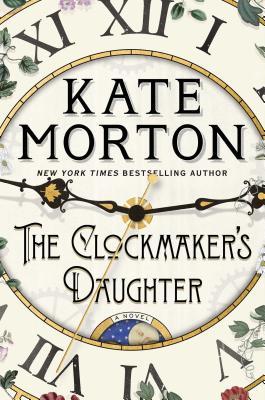
I don’t know why it took me so long to get around to reading Kate Morton’s The Clockmaker’s Daughter. After all, I always enjoy her writing and appreciate how finely layered her stories are. Plus, I particularly love the mix of Gothic and historical fiction she brings to each story.
The Clockmaker’s Daughter is a slow burn of a story, one in which the pace exponentially speeds up the further into the story you go. Told between different time periods and differing points of view, the mystery at the heart of the story comes into focus piece by piece. As is often the case in a Kate Morton novel, you will probably be able to predict one plot mystery, but the other will confound you until the very end. Ms. Morton seems to excel at keeping all her cards close to her chest so that you have no choice but to go along for the full ride if you want to see the full answer to the mystery.
The Clockmaker’s Daughter is another strong novel by someone who seems to do nothing but write good, atmospheric historical fiction mysteries. Ms. Morton’s consistently strong characters, her attention to detail, her delicate balancing act between story-telling and story-showing, and the added Gothic touches always appeal to a wide audience, and this one is no different.
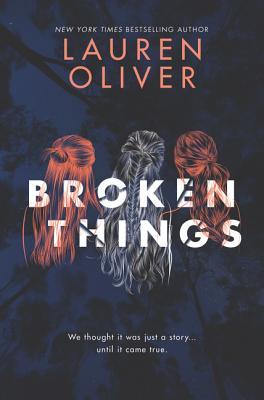
Broken Things by Lauren Oliver is not at all what I expected when I finally delved into it. I did expect a murder mystery, but I did not plan for the social commentary aspect of the story. I actually like the story more because it included the latter. The fact that Ms. Oliver is not afraid to tackle difficult topics like bullying, abusive relationships, and mental health adds not only complexity but also a layer of gravitas on top of something that would simply be another teenage murder mystery.
In fact, you might argue that Broken Things is more social commentary than a murder mystery. As we dive into each girl’s life since the murder and discover how messed up they are five years after, the story becomes less a whodunit and more a closer look at the dangers of false accusations and unhealthy relationships with yourself and with others.
What ultimately dooms Broken Things is the rather neat ending that seemingly ignores or glosses over all the messy details that make up the heart of the story. The happy ending is nice because the girls are so damaged. At the same time, the ending is too clean and too neat. The characters have too many rough edges and cracks for them to heal so suddenly, yet there is no doubt that Ms. Oliver leaves each character well on the path to a glowing future. For such an edgy novel, it deserves an edgier, more realistic end.
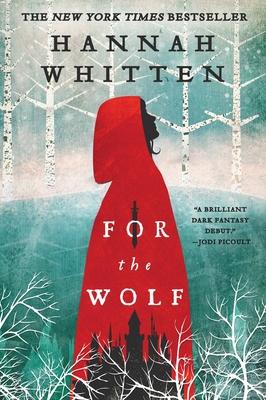
With For the Wolf by Hannah Whitten, the cover gives off such a Red Riding Hood vibe, that I knew I had to read it. Thankfully, I was not disappointed in the slightest. Red is every bit as strong as you would expect, and the Wolf is, well, pretty damn intimidating and frustrating and tragic and good and complex and…
For the Wolf isn’t just Red’s story, however. We also get to meet her twin sister, who is the exact opposite of Red in almost every way. This means that her portions of the story, while important for building the main conflict of the series, are less…impressive…than Red’s. Neve is insipid and uninspiring, and you want to just roll your eyes and groan at the ease with which others manipulate her.
Thankfully, Neve’s scenes are small interludes from Red’s adventures. Red has such a passion for life and for duty that it is infectious. Plus, she can differentiate between the few versus the many, something Neve is wholly incapable of doing, which means she fights for what is right for all and not just for her. She is willing to sacrifice her own happiness if it means that her country will be better for it. Better yet, she does not back down from fear or intimidation. In other words, she is my kind of girl.
With a supporting cast of memorable characters, lots of action, and plenty of romance, For the Wolf exceeded my expectations in every way. So much so that I am now going to be stalking Ms. Whitten for information about the sequel because, as is always the case in series, the wait is going to be a long one!
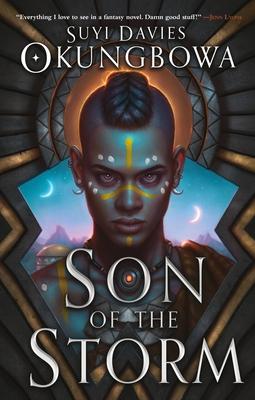
Son of the Storm by Suyi Davies Okungbowa is one that caught my eye because of its elements of fantasy and that cover. Plus, I am making a concerted effort to read more by authors of color and from other cultures, so this ticked off a lot of boxes in books I like to read.
It’s not that Son of the Storm is a bad story. On the whole, I did enjoy a lot of it. In particular, the caste system that exists in Bassa, with its focus on darker skin tones being better, is fascinating because it is such an opposite thought process to the caste system that exists in the United States. Another part I enjoyed was the idea that the general populace of Bassa wanted an emperor as their leader versus the committee rule that exists at the opening of the novel. Again, this is a shocking idea to Americans, as we learn from an early age that democracy or a democratic republic is the only method of government worth having (right or wrong).
Unfortunately, the characters are not quite as compelling, and the story has a tendency to drag on and on. There is so much exposition, which is understandable. After all, Mr. Okungbowa is creating an unfamiliar world for an audience who most likely is not familiar with African cultures. There is a lot to explain. Yet, I’ve read much more complex and foreign stories with little to no exposition where the author essentially throws readers into the deep end and lets them figure out things like setting and culture as the story progresses. As frustrating as that can be, I much prefer to sink or swim than to have an author hold my hand the entire time.
While I enjoyed Son of the Storm, I don’t think I enjoyed it enough to want to continue the series. I loved the cultural aspect of the story. Unfortunately, I didn’t care for any of the characters in a way that makes me want to learn their fate.
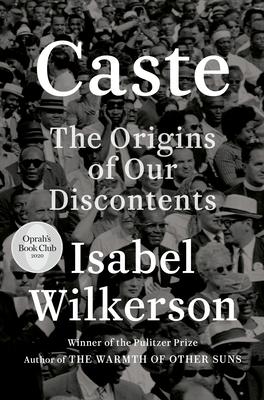
Caste: The Origins of Our Discontent by Isabel Wilkerson is an utterly fascinating look at race relations in the United States. The arguments Ms. Wilkerson has to make about racism not being a result of skin color but rather from a caste system are more than compelling. Her comparisons between the US and India and Nazi Germany are as chilling as they are interesting.
She presents her findings not just as a journalist but also as someone well experienced as one of the lower caste members. In fact, every one of her arguments comes with real-life stories proving her point, and she tells these stories in a way that makes you feel as if you are there, watching the scenes unfold before your eyes. As such, some of these stories are more than a little disturbing. There were several points within the book that I had to stop and let the book sit for a while if only to let my stomach and mind settle after the intimate look at mankind’s cruelty to each other. She also includes many anecdotes taken from her own life, which serve to drive home this idea that we live in a caste society, of which Blacks and indigenous peoples are America’s Untouchables.
I don’t normally talk with others about books I am reading, mostly because what I read would not interest most of the people I know. However, I could not stop talking about Caste: The Origins of Our Discontent with others. Its ideas are so profound and so interesting that I want others to read the book and learn as much as I did. Ms. Wilkerson opened my eyes to the idea that the turmoil our country is in is not an increase in racism but rather a power struggle among castes, wherein the upper caste is doing everything possible to maintain the status quo in spite of changing demographics that will eventually put the upper caste among the minority population. I cannot recommend Caste enough.
